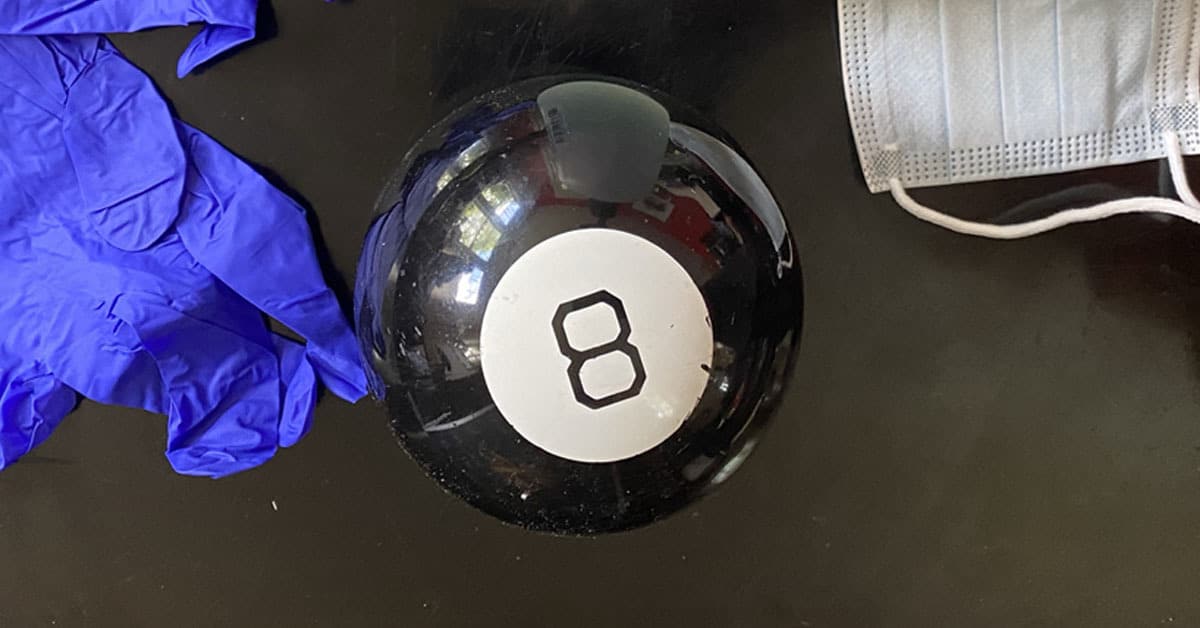Zooming to success–using digital technology as a communications tool

By Erin Williamson, Senior Account Manager
So, you find yourself in the midst of a global pandemic. Good news: you’re not alone.
However, in this age of social distancing, you find you’ve been spending a lot more time alone. Or at least more isolated, reliant on connections made possible through technology like Facetime, Zoom or your favorite social medium – love it or hate it – to get you through.
We’ve experienced deep disruptions to the ways we go about our daily lives, including how we work. So many businesses and nonprofits have had to adjust on the fly to a new reality that is open-ended and constantly changing. Which of these disruptions or changes will take hold permanently? There are so many questions, and the answers might as well be conjured by a Magic 8 Ball.
What comes next? Magic 8 Ball says: “Cannot predict now.” Bummer.
Disruption. In industry speak, this typically has meant outsiders challenging the major players to change. Common practices turned upside down. And while start-ups may find intriguing opportunities during these times, for established brands, this volatility is scary, especially when most folks didn’t have “global pandemic” on their 2020 bingo cards when they were planning for the new decade.
And while we may not know what’s ahead of us in the coming months, we know where we’ve been the past six months and where we are now. Businesses have deployed innovative, cost-efficient approaches to continue reaching their customers where they are.
One example is Gainesville, Ga.-based Longstreet Clinic, a privately-owned multi-specialty medical group with more than 200 providers across 10 north Georgia locations.
When the COVID-19 public health emergency was declared in mid-March, various mandates and exemptions were issued that allowed healthcare providers to be reimbursed for expanded telehealth and video visits. Telehealth has been talked about as critical to the future of healthcare for years, but rules and regulations for how it could be used were barriers for many providers.
Suddenly those roadblocks were lifted, by and large. Not only were businesses holding meetings and schools conducting remote instruction, but physicians were able to evaluate their patients in the safety of their own homes, when appropriate.
Longstreet Clinic widely deployed telehealth across its practices, particularly in March and April, and continues to use this approach when deemed medically appropriate. While this technology allowed providers to assess and attend to patient’s medical needs from home, Longstreet also needed a way to reach the community with updated practice information, resources and health education related to COVID-19, especially while everyone was sheltering in place.
We helped them develop a strategy utilizing Zoom, the popular video conferencing software, to conduct a series of panel discussions that were broadcast in real time via Facebook Live. (Zoom also integrates with YouTube Live.)
Topics have included what to know about pediatric and OBGYN care during the pandemic, protecting vulnerable populations, a Q&A with surgeons as elective procedures resumed, and pediatricians discussing back to school questions from parents.
Once surgeries and procedures resumed and COVID-related topics began to subside, we expanded the Facebook Live series to discussions about robotic surgery, weight loss surgery and more. And with fewer community events, health fairs and opportunities to visit referring physician offices, they even included a live panel introducing five of the nine new doctors who have joined the practice since August.
Facebook rewards original video content with enhanced organic reach so these posts performed well above average when it comes to audience and engagement. Beyond organic, we boosted each video post for a nominal amount for several days following the original broadcast in order to expand Longstreet’s reach in the region and help position the group as a community resource for health-related information and medical care during the pandemic. In addition to video engagement, they also saw an immediate spike in page likes and follows.
We always tell clients that social media should never be the marketing strategy, but it can be an effective part of it. With more people home and online, it’s become a bigger piece of the pie for many businesses as they look for ways to stay connected with their customers. And in Longstreet’s case it became a more powerful tool than ever before.
Should other businesses and nonprofits evaluate live social media events as a way to communicate with clients, potential customers and potentially fundraise as we continue navigating this pandemic?
Magic 8 Ball says: “Signs point to yes.”
Back